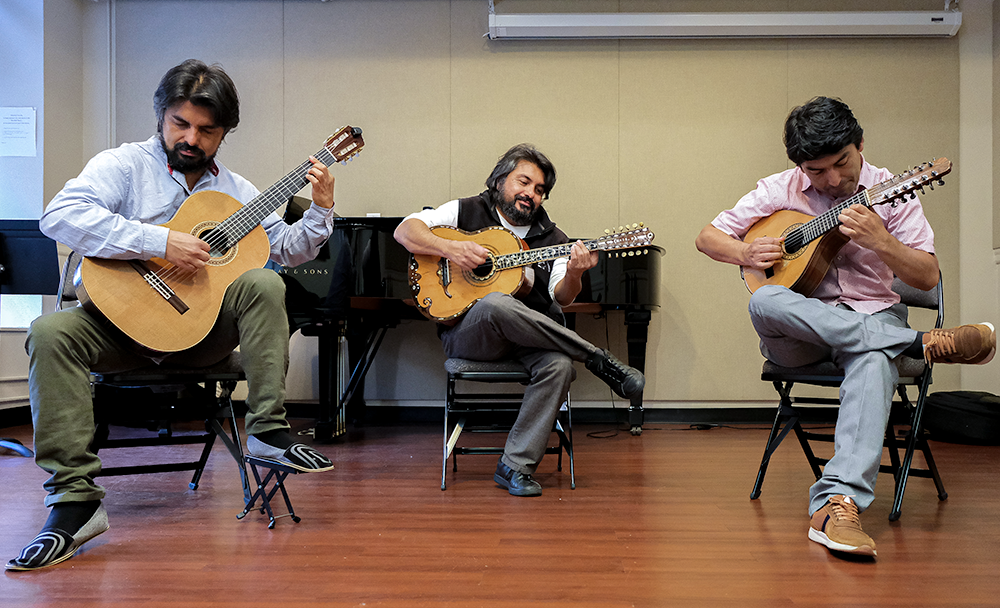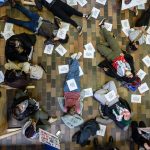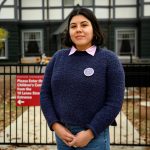
When David Guzman, assistant professor of music and voice at the Boston University School of Music, first met the Trios Palos y Cuerdas Hermanos Saboya, he said he still had hair.
“I was in my 20s when I met them 30 years ago,” Guzman said. “They started when they were babies. They were about 10 years old.”
Trios Palos y Cuerdas Hermanos Saboya — “one of the most versatile and prominent ensembles of the Colombian Andean music scene” according to the BU Arts Initiative website — features brothers Daniel Saboya on the guitarra, Lucas Saboya on the tiple and Diego Saboya on the Bandola. The trio is in residence at BU from Oct. 11 to 14.
“My goal is to broadcast music that is not well known here in the United States,” Guzman said. “Colombia and Latin American countries are really rich in folk music.”
Trios Palos y Cuerdas Hermanos Saboya performed at the College of Fine Arts Concert Hall on Tuesday to an auditorium of students, faculty and members of the Boston community.
Guzman sang vocals for the band and he said the experience of performing is “unique.”
“You can talk about music, we can hear examples, but the experience of the concert hall is unequivocally the best thing that people could experience,” Guzman said. “There are no words that explain how somebody feels with a tune, with the text, with the sound of the instruments.”
Ty Furman, managing director of the BU Arts Initiative, said at the core of Colombian Andean music rests the tiple, a 12-string instrument in the guitar family.
Guzman said the tiple is the “national instrument of Colombia.”
“It’s an instrument that has been developed…from the late 19th century,” Guzman said. “Nobody knows this instrument here in the United States.”
For Furman, increasing access to the arts is “transformative” work.
“Not everybody at BU comes from a metropolitan area where there are museums and touring Broadway shows and all that stuff,” Furman said. “We can provide that access and opportunities plus introducing them to emerging and established artists through residencies.”
Medea Sanabria, a junior at Suffolk University, attended the performance because her father is Colombian, and the event was free.
“I love when cultural events are free and accessible, because usually they cost a lot of money,” Sanabria said. “They’re not really easy to get to, especially for students… so seeing this type of stuff is pretty amazing.”
Guzman said the performance was a “dream come true.”
“What makes me happy is that we are going to be able to display this music to BU students and to the BU community,” Guzman said. “I hope that Colombian people of Boston also attend the concert and all the activities.”
Leonardo Yana-Romero, a sophomore in the College of Communication, said he, too, believes “music is supposed to be performed live” because it “humanizes the performance.”
A guitarist and violinist himself, he said he sat in the front row of the audience because he wanted to be as close to the action as possible to get a more “intimate experience.”
“Music…is a universal language,” Yana-Romero said. “Everyone can connect to it. I think it’s just easier for people to kind of see other cultures as having commonalities, communicating through music itself.”




